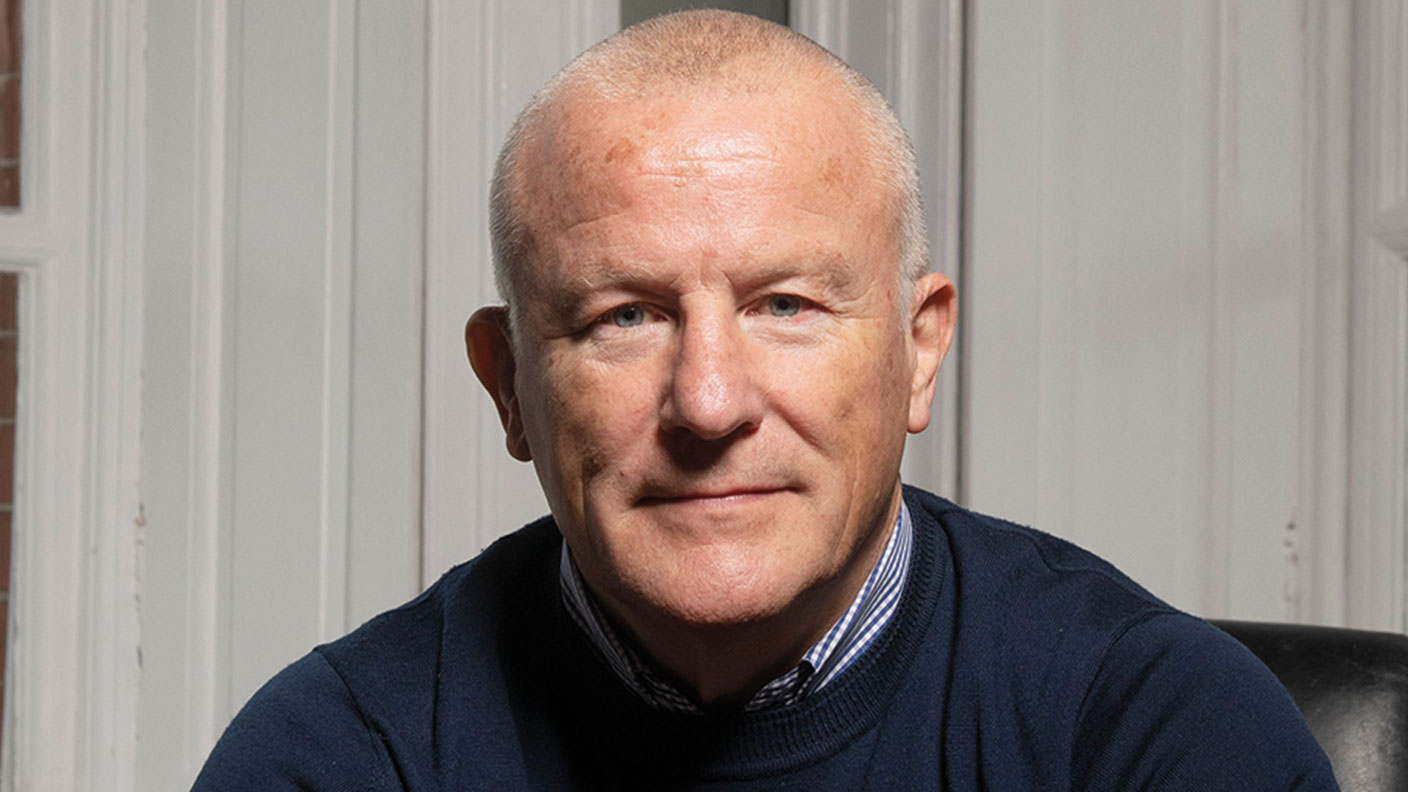First Woodford, now H2O – how worried should you be about liquidity?
In the wake of Neil Woodford's woes, fund manager H2O Asset Management has now been hit by concerns over illiquid assets in its portfolio. So how big a deal is this? And what can investors do about it? John Stepek explains.

Get the latest financial news, insights and expert analysis from our award-winning MoneyWeek team, to help you understand what really matters when it comes to your finances.
You are now subscribed
Your newsletter sign-up was successful
Want to add more newsletters?

Twice daily
MoneyWeek
Get the latest financial news, insights and expert analysis from our award-winning MoneyWeek team, to help you understand what really matters when it comes to your finances.

Four times a week
Look After My Bills
Sign up to our free money-saving newsletter, filled with the latest news and expert advice to help you find the best tips and deals for managing your bills. Start saving today!

People have been worrying about liquidity in various markets for years now.
But Neil Woodford's troubles have made the issue a live one. And as tends to happen with these things, it means that investors and journalists are looking under rocks that they might previously have ignored.
Yesterday, we found out that another group of funds has been dabbling in the shallow end of the liquidity pool. And the merest hint of concerns has forced the managers to take evasive action.
MoneyWeek
Subscribe to MoneyWeek today and get your first six magazine issues absolutely FREE

Sign up to Money Morning
Don't miss the latest investment and personal finances news, market analysis, plus money-saving tips with our free twice-daily newsletter
Don't miss the latest investment and personal finances news, market analysis, plus money-saving tips with our free twice-daily newsletter
How big a deal is this? And how can you avoid it hurting your wealth?
The latest fund to suffer a liquidity squeeze
London-based fund manager H2O Asset Management, which is owned by French bank Natixis, is having problems with liquidity (c'est ironique, n'est-ce pas?)
H2O manages about €30bn across six funds open to retail investors, that have proved very successful in recent years. Early last week, Robert Smith and Cynthia O'Murchu of FT's Alphaville blog took a very close look at the holdings in its funds.
It turned out that H2O's funds collectively held a fair chunk (about €1.4bn) of "highly illiquid" bonds issued by companies owned by the "enigmatic and flamboyant German financier Lars Windhorst".
The words "enigmatic" and "flamboyant" can be flattering in certain contexts, but they are not traditionally comforting words in the financial world, and it's fair to say that Windhorst has had his fair share of ups and downs over the years.
Long story short, H2O in some cases was by far the majority holder of these bonds, which were exceptionally hard to trade (ie, extremely illiquid), partly because of Windhorst's reputation (you can get the full lowdown over at Alphaville).
Apparently as a result of the delving by the FT, fund researcher Morningstar suspended its rating on one of the H2O funds, due to concerns about the liquidity of said bonds. In turn, the fund house saw more than €1bn pulled out of its funds.
As a result, H2O has been selling out of the offending bonds, and writing down the value of the holdings it still has, as much to reassure investors as anything else. It notes "that the aggregate value of the illiquid bonds is now below 2% of its assets under management," reported the FT yesterday.
Its funds have not been frozen, but investors trying to get at their money will have to do so at a discount of between 3% and 7%, to discourage further withdrawals.
H2O argues that the bonds themselves are not a huge part of its strategies, and it does look as though the manager has taken rapid steps to get ahead of the potential problem. But it is a useful reminder to us all that before you get into any investment, you should consider how easy it is to get out of it as well.
Make sure you know what's sitting in your investment account
Of course, as soon as we start hearing about "runs" on fund managers, our minds cast back to 2007 and 2008, and the massive run on the subprime mortgage market, which was one of the big destabilising factors that bankrupted the financial system.
Are there many parallels? Well, I'm still not convinced that this is a hugely widespread issue for the sorts of funds that MoneyWeek readers are likely to own. But do make sure you know what's sitting in your funds.
Asset illiquidity in itself is not a problem. You usually get paid extra money to hold illiquid assets, which is one reason that private equity and other illiquid holdings can be very profitable over the long run (assuming you don't overpay at the start).
So it's fine to own illiquid assets. The real problem arises when you own something that turns out to be a lot less liquid than you expected, and you or the fund manager who owns it on your behalf have to sell it in a hurry. It's all about the mis-match.
This liquidity mis-match issue is biggest for open-ended funds (unit trusts and Oeics) because when investors pull their money out, they have to sell their underlying assets to raise funds.
One issue is that under EU rules (UCITS is the technical term), these funds can hold up to 10% of their portfolio in illiquid assets. The problem is that, what with the pressure to compete with passive funds, and the general low interest-rate environment, there's good reason to suspect that many managers have used this allowance to bolster their returns.
If they are sitting hard up against the 10% limit and investors then start pulling their money out, you begin to have a problem you have withdrawals from the 90% of the portfolio that's in liquid stuff, and as a result, the illiquid stuff ends up as more than 10% of the fund. That means you need to deal with that (which is how you end up with Neil Woodford-style acrobatics).
I can also see some exchange-traded funds (ETFs) running into problems because of liquidity mismatches. There are so many different strategies and indexes, often with significant overlaps in terms of what they own. It'd be interesting (though not fun for the owners) to see which ETFs blow up if the market turns and there's a run for the hills by investors.
Liquidity is less of a big issue for closed-ended funds like investment trusts. However, you will find that if you try to sell an investment trust when no one else is buying, then you might have to flog it at a steep discount (look at Patient Capital Trust, for example). At least you can get your money out, of course.
But the point is, don't be lulled into a false sense of security. As an investors, you have a responsibility to understand what's in your portfolio.
It's good to take a hands-off approach to your portfolio you don't want to be obsessing over it and changing it on a weekly basis but you should review your holdings regularly and keep on top of any news flow related to them, to make sure they're still doing what you expected them to do.
Is your fund manager sticking to his or her knitting? Is their performance living up to your expectations? Is your rationale for buying the fund (or company) in the first place still valid?
And remember, it's fine to own some illiquid assets if you think that your asset allocation warrants it but just make sure that you know what the implications are, and make sure that the investment vehicle you use is up to the job. You don't want your fund manager to become a forced seller because other investors have less faith or less patience than you.
Get the latest financial news, insights and expert analysis from our award-winning MoneyWeek team, to help you understand what really matters when it comes to your finances.

-
 Should you buy an active ETF?
Should you buy an active ETF?ETFs are often mischaracterised as passive products, but they can be a convenient way to add active management to your portfolio
-
 Power up your pension before 5 April – easy ways to save before the tax year end
Power up your pension before 5 April – easy ways to save before the tax year endWith the end of the tax year looming, pension savers currently have a window to review and maximise what’s going into their retirement funds – we look at how
-
 Neil Woodford’s back – but has he really learned anything?
Neil Woodford’s back – but has he really learned anything?Opinion Disgraced fund manager Neil Woodford is planning a comeback. But he doesn’t seem to have learned much from his many mistakes. So why would anyone invest with him now?
-
 Neil Woodford’s back – but sometimes sorry isn’t enough
Neil Woodford’s back – but sometimes sorry isn’t enoughAdvice Neil Woodford’s funds blew up in 2019. Now he is on the comeback trail. But his apologies are unconvincing.
-
 Woodford investor? Your first payment is coming soon
Woodford investor? Your first payment is coming soonNews Private investors left stranded by the collapse of the Woodford Equity Income fund will soon be getting at least some of their money back. But they will have to wait a while longer to see how much more – if any – they will receive.
-
 Neil Woodford continues to cast a shadow over his successor at Invesco
Neil Woodford continues to cast a shadow over his successor at InvescoFeatures Mark Barnett, former star manager Neil Woodford’s successor at Invesco, has applied the same formula, and is struggling.
-
 Is it time to buy Patient Capital Trust?
Is it time to buy Patient Capital Trust?Features Neil Woodford’s Patient Capital Trust has been taken over by asset manager Schroders. The share price has surged - but should you buy in? John Stepek looks at the trust’s prospects.
-
 Neil Woodford: no silver lining for his investors
Neil Woodford: no silver lining for his investorsEditor's letter Neil Woodford made every mistake it is possible to make as a money manager. And his investors have been stiffed. But however wrong it all went, Woodford never stopped taking the fees.
-
 Woodford believed his own hype – now his investors are paying the price
Woodford believed his own hype – now his investors are paying the priceFeatures Neil Woodford was once one of the brightest stars in Britain’s investment firmament. Then he came crashing down to earth. John Stepek explains what went wrong.
-
 Woodford’s empire collapses – what happens to his investors now?
Woodford’s empire collapses – what happens to his investors now?Features With Neil Woodford getting his marching orders and his funds being shut down, John Stepek explains what it means for his former empire, and for those with money locked in.